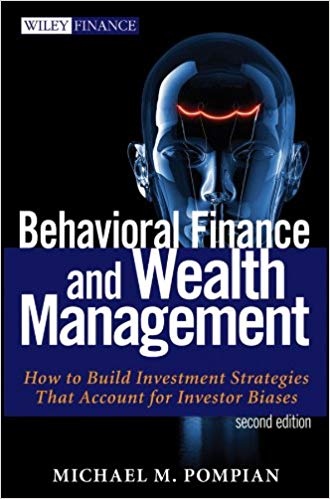Useful Links
Behavioral Finance and Wealth Management: How to Build Investment Strategies That Account for Investor Biases

Behavioral Finance and Wealth Management: How to Build Investment Strategies That Account for Investor Biases
Understanding how to use behavioral finance theory in investing is a hot topic these days. Nobel laureate Daniel Kahneman has described financial advising as a prescriptive activity whose main objective should be to guide investors to make decisions that serve their best interests. The reality? That's easier said than done. In the Second Edition of Behavioral Finance and Wealth Management, Michael Pompian takes a practical approach to the growing science of behavioral finance, and puts it to use for real investors. He applies knowledge of 20 of the most prominent individual investor biases into "behaviorally-modified" asset allocation decisions. Offering investors and financial advisors a "self-help" book, Pompian shows how to create investment strategies that leverage the latest cutting edge research into behavioral biases of individual investors. This book:
Shows investors and financial advisors how to either moderate or adapt to behavioral biases, in order to improve investment results and identifies "the best practical allocation" for investment portfolios. Using these two sound approaches for guiding investment decision-making, behavioral biases are incorporated into the portfolio management process
Uses updated cases studies to show investors and financial advisors how an investor's behavior can be modified to improve investment decision-making
Provides useable methods for creating behaviorally modified investment portfolios, which may help investors to reach their long term financial goals
Heightens awareness of biases so that financial decisions and resulting economic outcomes are improved
Offers advice on managing the effects of each bias in order to improve investment results
This Second Edition illustrates investors' behavioral biases in detail and offers financial advisors and their clients practical advice about how to apply the science of behavioral finance to improve overall investment decision making.
Information
Users of Visitor are not allowed to comment this publication.
Introduction to Finance: Markets, Investments, and Financial Management - 16th Edition
5-10-2021, 17:34, e-BooksBalanced Asset Allocation: How to Profit in Any Economic Climate by Alex Shahidi
Balanced Asset Allocation: How to Profit in Any Economic Climate by Alex Shahidi
21-05-2019, 00:00, e-Books